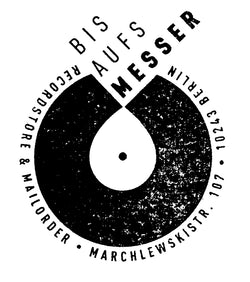Self-recorded in the spring of 2023 on a laptop in a cabin that leans against the border of Shenandoah National Park, "When the Roses Come Again," is culled and composed from a week of 8-hour a day improvisations. Bachman worked as a carpenter’s assistant in this cabin and borrowed it for a makeshift studio. He extended his handywork into repurposing and building his own instruments as tools for this creation. He pulled the frets off an old Hondo banjo, sanding it down, in search of new sounds and learned to build his own Appalachian mouth bow from reading an instructional manual. He cut-and-pasted free-form jams into compositions, choosing notes and passages that resonated and connected with himself and each other, sometimes altering their speed and pitch.
But this isn’t an album about living off the land or sustainable solitude. Bachman dug into the dirt of his own musical DNA. On his mother’s side of the family, who lived in the Laurel Highlands of the Alleghany Mountains, were his literal musical descendants, the Hostetler Blind Family Band. A mid-19th century string band, all born blind (including some born without eyes), the Hostetlers performed both original and traditional music on concertina, violins, cello, and dried corncobs for percussion. Bachman doesn’t try to replicate his ancestral past, he does breathe contemporary life into it through its inspiration, using oscillators and drum apps on his phone, as well as fiddle, banjo, and guitar to construct his own string band compositions. All the music was performed, arranged, and mixed entirely by Bachman, except for some of the handbells and harmonium samples played by Tyler Magill (Grand Banks/Carry).
Integrating technology as a tool for collage, as well as acoustic instruments that pre-date all of us, Bachman creates an album that has as much to do with Terry Riley, Laraaji, Eno’s late 70’s ambient albums, and 75 Dollar Bill, as it does the Carter Family, Stanley Brothers, and Hobart Smith. And though this music has an undeniable intensity at times, it grounds the listener in an otherworldly mosaic of memory and experience. “My intention with this record was to represent the spiritual machinery that moves through all life, samsara, the wheel of life, etc. starting with birth, then death, and ending in rebirth,” writes Bachman. “I see this process moving in our garden through the seasons, and through intense personal experiences I’ve had. I see it in the churning of centuries within my own family, and through exploring these intergenerational connections I hope to better understand my own place within these intangible cycles.”
This cycle of life is indicated not just by the textures and sounds of the music but by the compositions’ titles, which originate from the Carter Family’s lyrics to “When the Roses Come Again”, itself a song about life after death. The music remains light and cyclical, re-born as it reverently sings and hums. "When the Roses Come Again" is an album of not just musical leitmotifs, but re-occurring personal and natural histories that bloom long after their perennial promise is deceased. - Jerry David DeCicca, August 2023

